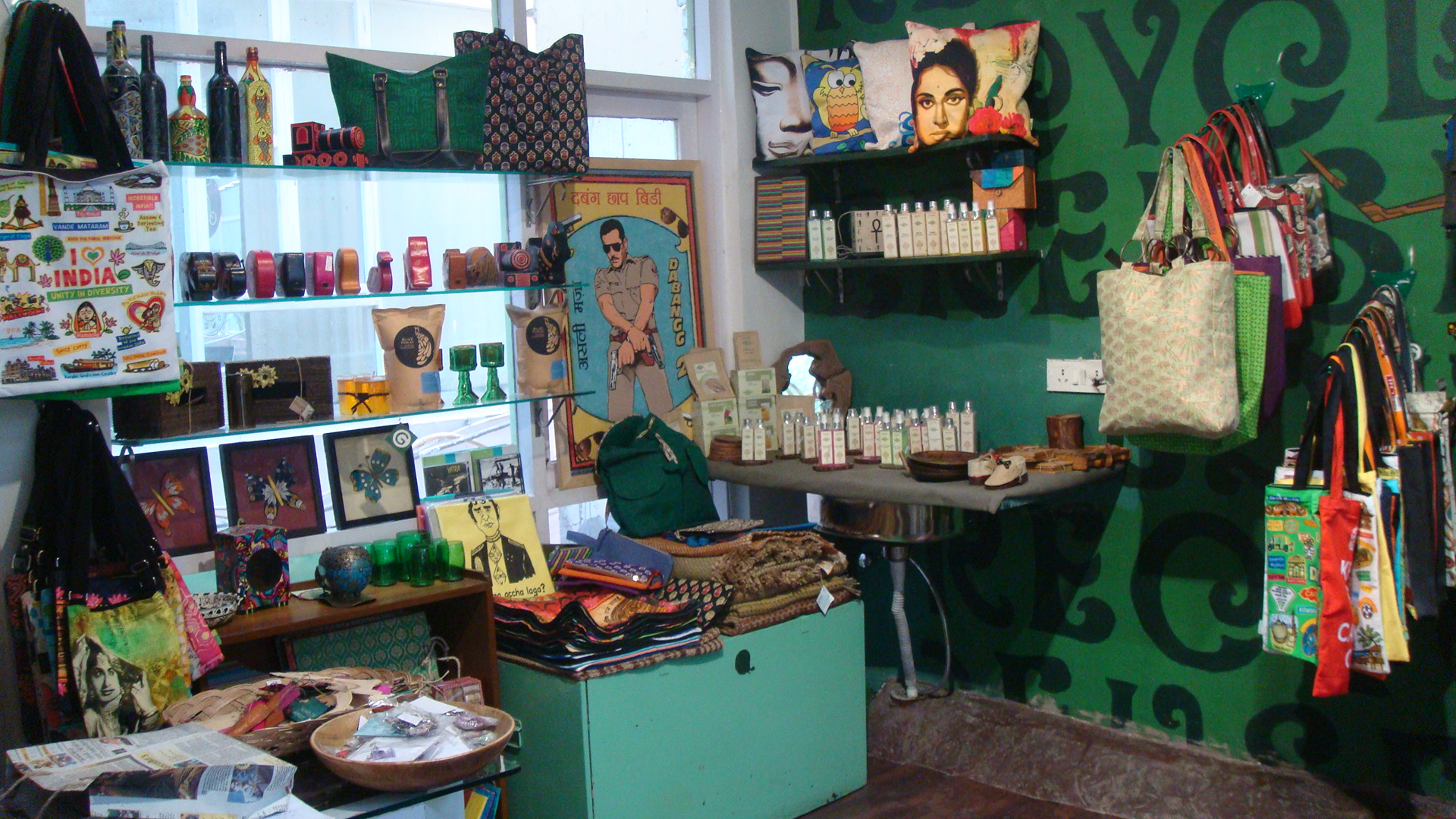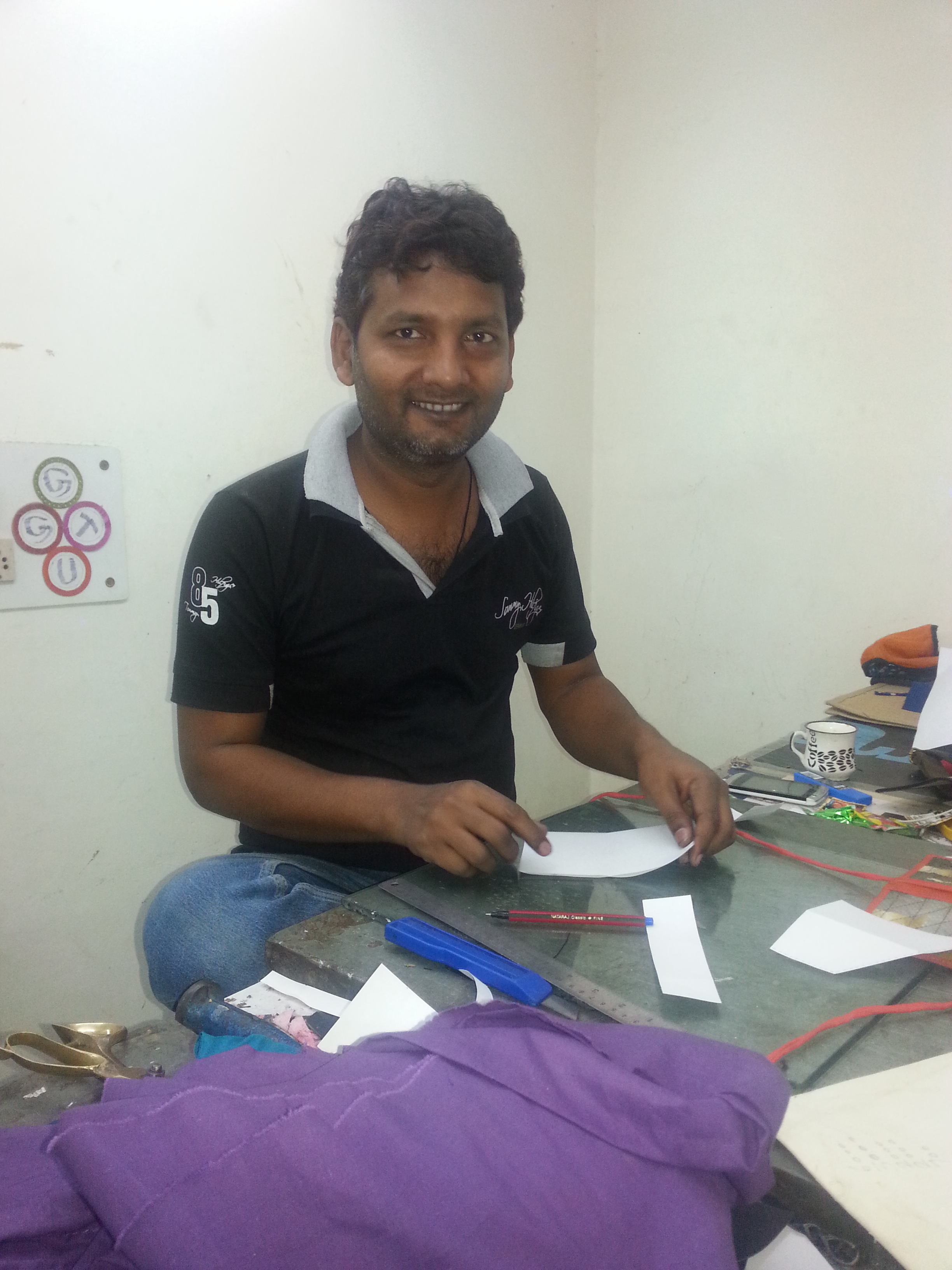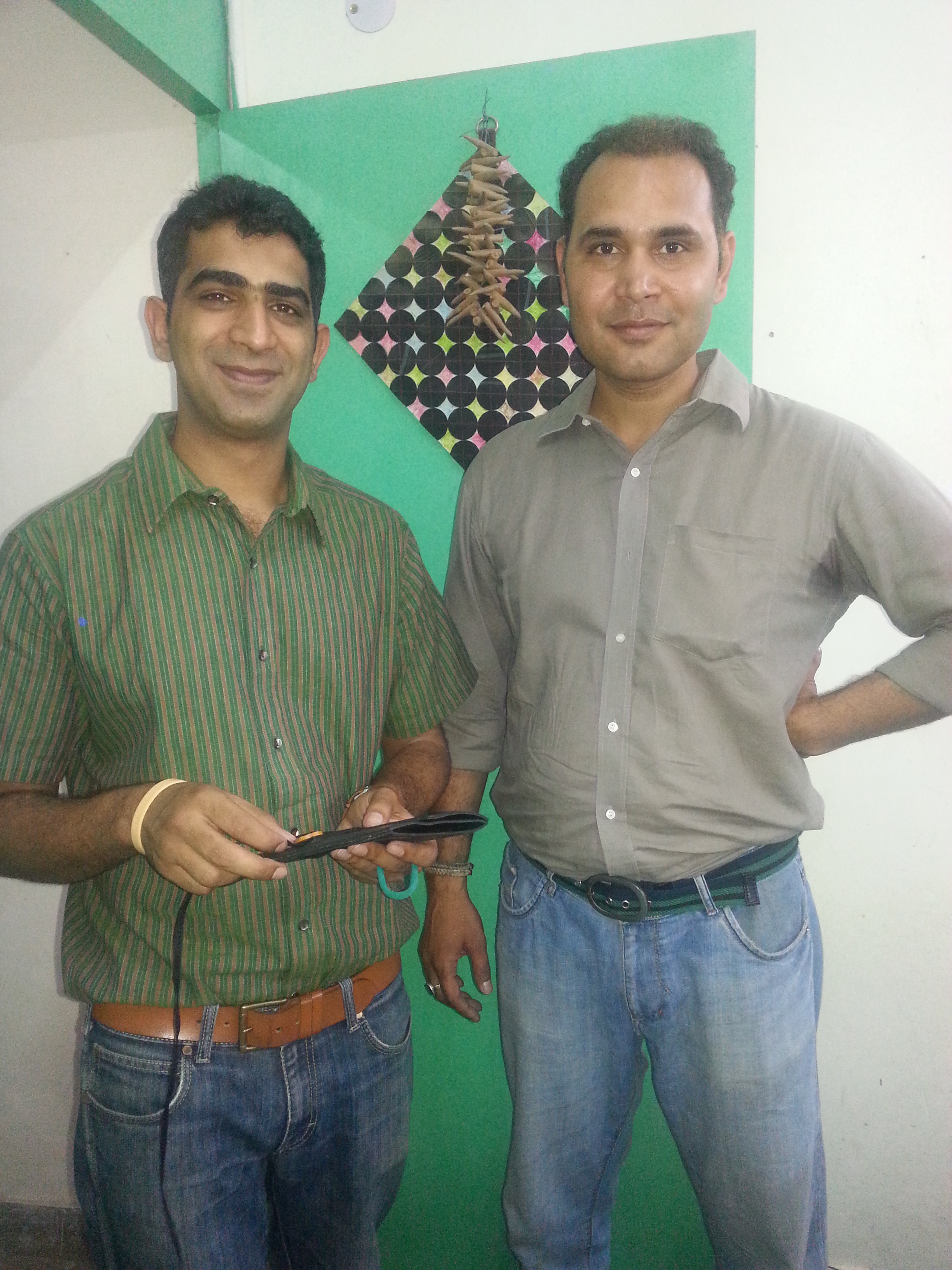Sweccha store
admin
 One of my favorite places in Delhi and in India is Hauz Khas Village. It is not a village by any means, but an area offering unique and fun shopping, art galleries, and food joints. It is also adjacent to a deer park which is nice place to go for a leisurely stroll. They have some beautiful historical monuments. I loved the all the items I found at Hauz Khas Village including old Bollywood style posters/coasters, and hand painted t-shirts from Maati. Today I was here to visit Sweccha store.
One of my favorite places in Delhi and in India is Hauz Khas Village. It is not a village by any means, but an area offering unique and fun shopping, art galleries, and food joints. It is also adjacent to a deer park which is nice place to go for a leisurely stroll. They have some beautiful historical monuments. I loved the all the items I found at Hauz Khas Village including old Bollywood style posters/coasters, and hand painted t-shirts from Maati. Today I was here to visit Sweccha store.
 Before reaching I also stopped off at the travel café Kunzum. I found it to be a great place to connect to other travelers or simply enjoy the wifi, travel books, and appreciated the generosity of the ‘pay-what-you-like’ café. After searching around a bit, I was directed to an alley and then a staircase.
Before reaching I also stopped off at the travel café Kunzum. I found it to be a great place to connect to other travelers or simply enjoy the wifi, travel books, and appreciated the generosity of the ‘pay-what-you-like’ café. After searching around a bit, I was directed to an alley and then a staircase.
I was now in the Swechha store, which offers unique, quirky, and well-designed upcycled products. Swechha Store (formerly known as Green the Gap) is an upcycling fair trade social enterprise, which houses a shop and production workshop in Delhi. Swechha Store is part of Swechha, one of the leading youth and environmental NGO’s in India.I loved so many of the products, including the wallets made out of tire. The store offers not only the Sweccha brand products, but also other eco-friendly brands.
I also had an opportunity to spend time at their eco friendly office and workshop. Here they also run the NGO, which was founded and run by Vimlendu Jha. He is also the face behind the enterprise and creator of Sweccha Store. The proceeds from the store help run the NGO. You can see more on my discussion with Vimlendu here.
Visiting the workshop, I began chatting with Bunkim - the ever so friendly main lead for Swechha store, who often mentions his love for the mountains from his home in Himachal Pradesh. We walked into a room and right away I saw the incredibly talented artisans working in the workshop. They were working on tire laptop bags. Bunkim mentioned that many of them come from disadvantaged backgrounds and that they have a fair trade unit. “We pay the people well, we respect them and, it’s also a very happy work environment that we are providing. This is very important to us and reflects in each and every product that we make. So each piece shows that it was made with love and care.”
The concept of the store started six years ago. At first it was just a project to see what happens when waste leaves your house. Does it go to a landfill like it does in India and stay there or can we extend the life of what we call waste?
They use products that people discard often and reuse them. They work with some of Delhi’s poorest rag pickers. The rag pickers pick up items that the recycling centers resell to Swechha. This cycle supports the rag pickers and the centers.
Through reusing waste and creating well-designed functional products, they are empowering consumers to make choices about their shopping habits. Consumers purchase an upcycled bag and hopefully that will get them to start thinking about how they can make the rest of their lives more sustainable and eco friendly. Swechha store is “changing the mind-set of people” as Bunkim proudly pointed out. Hopefully citizens can think about the issue of waste disposal for example and how they can reduce their everyday waste.
Next I spoke with Ram, who manages quite a few things, including getting all the raw materials and production. He has been working there for three years and lets me know that he feels incredible empowered and excited about Swechha. As the company moves forward he is happy to be there with them. He sources the waste materials such as, chip packets, tetra packs, milk pouches, waste leather, and rice sacks. It’s a lot of work to gather the best quality waste.


